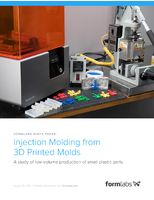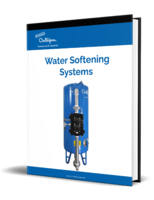Upcoming Workshop to focus on tissue engineering scaffolds.
Press Release Summary:
Standards and Measurements for Tissue Engineering Scaffolds: What Do We Have; What Do We Need? will take place in Indianapolis, IN, on May 21 to identify highest priority items for future standards work for scaffolds for TEMPs. Bringing together government, academia, and industry, workshop will include discussions on how standards for tissue engineering scaffolds are currently being used by community and what opportunities exist for developing new scaffold standards.
Original Press Release:
ASTM International Announces Upcoming Workshop on Standards and Measurements for Tissue Engineering Scaffolds
W. CONSHOHOCKEN, Pa.–A Workshop on Standards and Measurements for Tissue Engineering Scaffolds: What Do We Have; What Do We Need? will be held May 21 the JW Marriott Indianapolis in Indianapolis, Ind. Sponsored by ASTM International Committee F04 on Medical and Surgical Materials and Devices, the workshop will be held in conjunction with the committee’s standards development meetings.
The purpose of the workshop is to identify the highest priority items for future standards work for scaffolds for TEMPs. This workshop will bring together government, academia and industry to discuss how standards for tissue engineering scaffolds are currently being used by the community, and what opportunities exist for developing new scaffold standards. Leaders in the field, including clinicians, regulators and product developers will discuss how their organizations use ASTM scaffolds standards and what standards they needed to accelerate future scaffold development. The workshop will focus more on discussion of future needs than on presentation of past accomplishments.
The target audience is those involved in developing scaffolds-based TEMPs including industry, government and academia. Discussion items will include:
• Identify issues needed for future ASTM TEMPs standards activities;
• Standards to advance regulatory approval and product introduction;
• Prioritize future work so that most important issues are addressed first;
• Determine how standards or reference materials are most likely to be used;
• How can measurements/standards help with translation;
• Determine whether standards/reference materials are for discovery stage or product review stage;
• Identify targets for future scaffold reference materials;
• Prioritize the measurements that should be used from the current standard guides;
• Develop a hierarchy of future measurements/standards priorities for scaffold characterization;
• Validation of models for predicting scaffold properties;
• Needs for scaffold standards as revealed by basic research and/or clinical research/experience;
• Traceability of measurements for reporting and publication of laboratory/clinical results;
• Assessing incorporation of new measurement technologies into standards;
• Value of standards from a regulatory perspective;
• In vitro testing of cell behavior on scaffolds and factors that affect cell response: structural, chemical & mechanical properties of scaffolds;
• Storage and packaging of scaffolds, determination of shelf life; and
• Batch to batch testing of scaffolds, release criteria.
Online registration opens approximately eight weeks before the workshop and closes May 15. The attendance fee for ASTM members is $75 USD online and $100 USD onsite; the fee for non-members is $100 USD online and $125 USD onsite; and there is no fee for students.
For registration and additional information, visit www.astm.org/F04Wrshhp0513 .
Additional technical information is available from workshop co-chairmen Carl G. Simon Jr., National Institute of Standards & Technology, Gaithersburg, Md. (phone: 301-975-8574; carl.simon@nist.gov); John A. Tesk, Biomedical Materials & Devices Consulting, Highland, Md. (phone: 301-854-9727; jatesk@verizon.net); Paul Tomlins, European Standards Consultant (phone: 44-0789-9680-713); tomlinspaul@gmail.com); and Reto Luginbuehl, Robert Mathys Foundation, Bettlach, Switzerland (phone: 032-644-1416;Â reto.luginbuehl@rms-foundation.ch).
ASTM International is one of the largest international standards development and delivery systems in the world. ASTM International meets the World Trade Organization (WTO) principles for the development of international standards: coherence, consensus, development dimension, effectiveness, impartiality, openness, relevance and transparency. ASTM standards are accepted and used in research and development, product testing, quality systems and commercial transactions.
ASTM Staff Contact: Hannah Sparks, Phone: 610-832-9677; hsparks@astm.org




